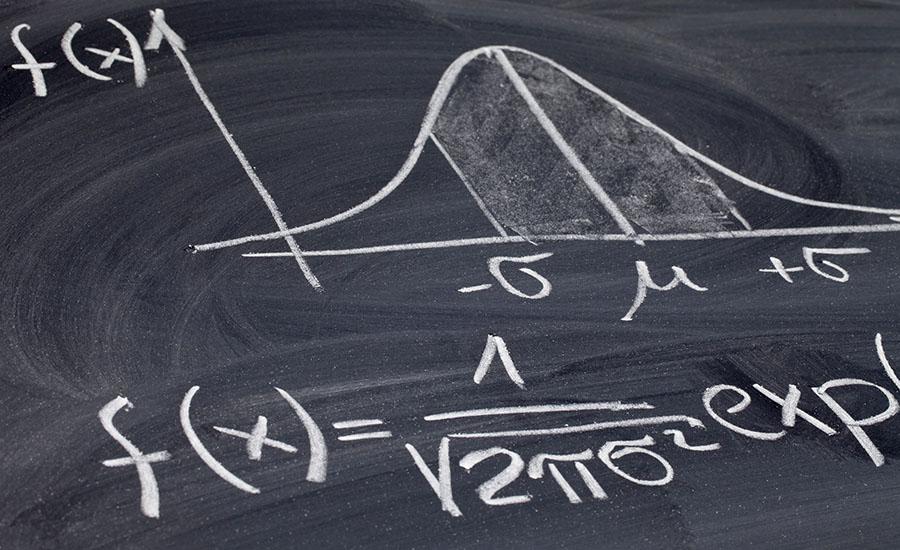Grades:
4th Grade, 5th Grade
In this hands-on lesson, students will explore how speed is calculated, what inertia is and apply it to Newton’s Laws of Motion. They use the engineering design process to construct race cars out of
Grades:
6th Grade
Students explore the limiting factors of yeast over 2-3 days. The materials needed are yeast, sugar, water, ice, tea kettle, empty soda or water bottles, balloons, graduated cylinder, string, ruler
Grades:
6th Grade
To demonstrate their understanding of how energy is passed throughout an ecosystem and the symbiotic relationships of organisms within an ecosystem, students construct a food web marble run. This
Grades:
8th Grade, 9th Grade
Make quadratics come alive with stomp rockets! This is a 3-4 hour learning experience where students will build and launch paper rockets, then use the data to create quadratic equations.
Grades:
6th Grade, 7th Grade, 8th Grade
This hands-on science lesson will help students get a more accurate view of the solar system by making a scale model with play dough, balloons, rulers, and tape!
Grades:
4th Grade
Students will be able to design a method of protection for the Earth’s land that would withstand the impact of rainfall on soil and prevent erosion. Students will discover that the soil with
Grades:
6th Grade, 7th Grade, 8th Grade
This is an 8-lesson unit that is designed to be used together to learn about the health and diversity of your local watershed by placing leaf packs into a water source (natural or man-made ponds
Grades:
6th Grade, 7th Grade, 8th Grade
In this engaging lesson, students will examine the surface of the Moon to consider hazardous conditions that NASA may find there. Then, they will investigate several hazards (dust, boulders, and
Grades:
6th Grade, 7th Grade, 8th Grade
This is an 8-lesson unit that is designed to be used together to learn about the health and diversity of your local watershed by placing leaf packs into a water source (natural or man-made ponds
Grades:
1st Grade
In this hands-on lesson, students will listen to "The Water Princess" by Susan Verde and then create their own water filtration system in a small group. Students will consider questions like, "How can
Grades:
3rd Grade
SUMMARY: This lesson challenges 3rd grade students to apply their knowledge of the physics of light by having them design, create, and test an obstacle course that their beam of light must navigate
Grades:
3rd Grade
Students will tend to their garden boxes and observe the plants that are starting to grow. Students will take measurements and start a graph on growth throughout the growing cycle of their garden
Grades:
3rd Grade
In this lesson, students will create a unique animal and then describe & draw it in a specific habitat. The students will determine what adaptations the animal needs to survive in the habitat and
Grades:
5th Grade, 6th Grade, 7th Grade, 8th Grade
In this hands-on lesson students review the Edison robot and coding in Edscratch. They will then work together to solve math problems and then code the Edison robot to match their solution to the math
Grades:
3rd Grade
In this lesson, students will research a variety of habitats. They will then use their research to document what they learned using technology. This information will be used in future lessons to build
Grades:
6th Grade
Can one organism turn an ecosystem upside down? In this engaging lesson, students use an interactive site (hhmi biointeractive) to understand and answer how a species becomes invasive, analyze
Grades:
6th Grade
This is the second part of the egg drop challenge. Students will improve on their original design and make a new design to test and analyze.
Grades:
6th Grade, 7th Grade, 8th Grade
This is a two- part lesson using pull back cars. Students will change the mass of their pull back cars to determine if the mass affects the distance they travel or their speed. This engaging lesson
Grades:
5th Grade, 6th Grade, 7th Grade, 8th Grade
In this engaging lesson students are introduced to the key computational concept of variables using Edison robots and the Scratch-based programming language EdScratch4. Variables, which can be created
Grades:
6th Grade
This is the first lesson is a series of 2 for the egg drop challenge. Students will work in groups to design and test an egg drop capsule. Students will keep a budget and fill out a data and
Grades:
6th Grade, 7th Grade, 8th Grade
This is an 8-lesson unit that is designed to be used together to learn about the health and diversity of your local watershed by placing leaf packs into a water source (natural or man-made ponds
Grades:
3rd Grade
This lesson is the initial planning, sorting, and planting lesson to get Our Plot of Sunshine Curriculum started within a 3rd grade classroom. Can be modified for other grades, but math within this
Grades:
6th Grade
Students will be thinking like engineers as they design their marble roller coasters using the principles of kinetic and potential energy.
Grades:
5th Grade, 6th Grade
This is an introductory lesson designed for a robotics after-school session involving materials and equipment from VEX robotics and coding. Students explore robotics, discuss the tasks robots can
Featured Lesson Plans
Check out these notable lesson plans.

Featured
Arizona Animal Crossing
Grades:
6th Grade
In this lesson, students use the engineering process to solve a real-world problem along the I-10 in Arizona. Students analyze data about roadkill along a particular stretch on the I-10 just outside

Grades:
4th Grade
Go through different STEM, reading, and writing activities with Roz and her friends in The Wild Robot. Students will problem solve, participate in discussions, and learn about artificial intelligence

Grades:
9th Grade, 10th Grade, 11th Grade, 12th Grade
This lesson uses a Modeling Instruction approach to developing the graphical and mathematical relationships for Circular Motion for students in Grades 9-12. Students design an experiment, collect data
